Relatives of Revolutionaries at this year’s CPPCC
The 24 children and relatives of early Chinese revolutionaries and former national leaders make up 1 percent of the 2,237 members of the CPPCC National Committee this year.
Members with revolutionary relatives include the illustrious Mao Xinyu, grandson of Mao Zedong, Deng Nan, daughter of reformist leader Deng Xiaoping, Zhou Bingjian, niece of former premier Zhou Enlai, Zhu Heping, grandson of former PLA commander-in-chief Zhu De, Chen Yuan, son of revolutionary leader Chen Yun, Wan Jifei, son of former vice-premier Wan Li, Li Xiaolin, daughter of former president Li Xiannian, Chen Zhishu, son of PLA General Chen Geng, Li Hongta, grandson of CPC pioneer Li Dazhao, Li Xiaolin, daughter of former premier Li Peng, and Zhu Yanlai, daughter of former premier Zhu Rongji.
Yu Zhengsheng, member of the Standing Committee of the Political Bureau of 18th CPC Central Committee, is the son of two former senior party leaders. According to a Xinhua report, when talking about his family background, Yu said that his parents only "hoped their children were right-minded and forbid them from indulging in privileges."
New faces
Among the 24 members, 15 are male and 9 are female.
Chen Yuan, Xu Xiaoyan and Ren Kelei are newly elected members, while the others are all re-elected.
Chen Yuan, eldest son of revolutionary leader Chen Yun, is the governor of China Development Bank and called "banker with best modern financial ideas".
Lieutenant General Xu Xiaoyan, son of Marshal Xu Xiangqian, has followed in his father's footsteps and served in the military.
Ren Kelei, son of former Guangdong Provincial party leader Ren Zhongyi, is the president of tourism and property developer group Overseas Chinese Town (OCT). Ren Zhongyi was integral in the reform of Guangdong Province's planned economy.
Professions
Among the 24 members there are eight working in political field, 10 in business, five in the military and one as a scholar.
The only scholar is Huang Fangyi, well known economist and son of famous democrat Huang Yanpei. The junior Huang was born in Shanghai, 1946, and he is a graduate of Duke University in the US and served as a professor at Peking University. Huang currently conducts research for the Chinese Academy of Social Sciences and Peking University, while also occasionally teaches at Johns Hopkins University and Columbia University.
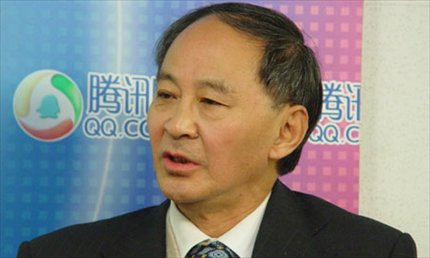
Top-ranking politician - Deng Nan
Deng Nan, second daughter of Deng Xiaoping, has the highest-ranking position among the 24. Born in Guangan, Sichuan Province in 1945, Deng Nan became a ministerial-level official while serving as the party secretary of the China Association for Science and Technology (CAST) in 2004. She resigned from the position in 2011.
Deng Nan has always kept a low profile and rarely appears in media. A CAST employee revealed to the Science and Technology Daily that although Deng does not talk much, her words are often direct and to the point.
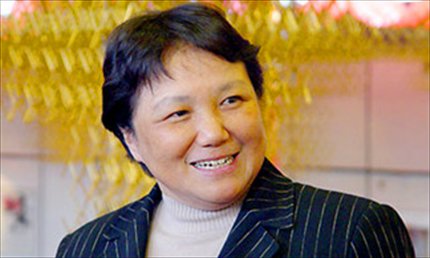
Top-ranking military officer - Xu Xiaoyan
Son of Marshal Xu Xiangqian, Lieutenant General Xu Xiaoyan holds the highest military rank among the 24 members. Born in 1947, Xu graduated from the Department of Computer Sciences and Technology at Tsinghua University. He was appointed as deputy director of the Science and Technology Committee, Chinese PLA General Armament Department, and is now a Lieutenant General.
Other members serving in the military include Air Force Major General Zhu Heping, son of the PLA's former commander-in-chief Zhu De.
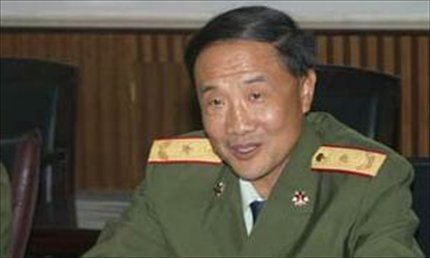
Li Xiaolin shines in the business world
Of all those involved in business, Li Xiaolin is the most eye-catching. Known as the "first lady of Chinese electric power" by the press, her gentle character and confidence have not only impressed the public, but helped her grow beyond being known as "Li Peng's daughter".
According to her official profile, Li became the president of China Power International New Energy Holding Ltd. in 2008 and was named one of the world's most powerful women by Fortune magazine in 2007. Li leads a 10-billion yuan empire and is the only female CEO of all listed companies holding H shares and red chips in Hong Kong.
Since the last Two Sessions, Li went from serving with the "Women's Federation" to the "Economic Sector" this year; a reflection of her advancing position in the business world.
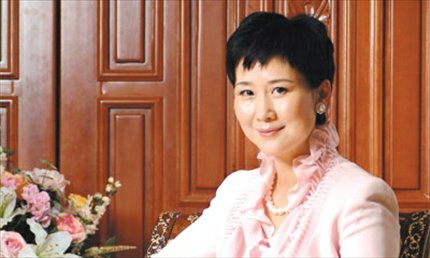
Educational backgrounds
Most of the 24 members have a university degree. Eight hold graduate degrees, such as Mao Xinyu, who was given a doctorate by the PLA Academy of Military Science.
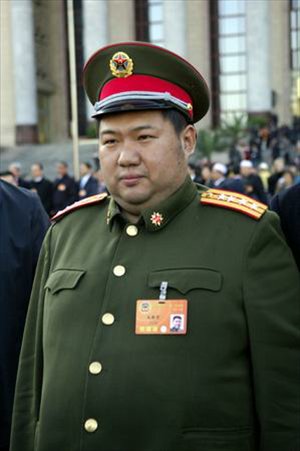
Almost all graduated from top universities at home or abroad, such as Peking University, Tsinghua University, Renmin University of China, and Cambridge University in the UK. Wan Jifei, senior economist and son of Wan Li, holds a degree in administrative management from the School of Governance, Peking University.
Seven have studied overseas. Li Xiaolin, daughter of Li Xiannian, attended the University of California, Los Angeles during her work with the Chinese People's Association for Friendship with Foreign Countries.
Proposals
Li Xiaolin, member of the CPPCC National Committee and president of China Power International New Energy Holding Ltd., has submitted 21 proposals in 5 years - the most among her 24 colleagues. Her proposals generally focus on new energy, limiting energy consumption and reducing pollution. She has filed constant complaints about the inconsistency in pricing between water, electricity and coal. She also appealed for energy price increases for high-consuming companies. Most of her proposals have been answered by related government departments. Li once told the press that she is satisfied with the replies she has received.
Unlike Li Xiaolin, another daughter of a former premier, Zhu Yanlai, has kept a low profile after being named a member of the CPPCC National Committee. In response to the numerous questions regarding the content of her proposals, she said she used work in management in commercial banks, focusing on microeconomic issues such as finance controls and market competitiveness. As a specialist member, she told herself to widen her horizons and pay attention to more general issues. "That's why I need to listen to more voices," said Zhu Yanlai.
Zhou Bingjian, niece of Zhou Enlai, was greatly influenced by her uncle as she lived for 27 years in the Inner Mongolia based on the former premier's request of taking root in the prairie. Zhou has raised many proposals on the education of migrant workers' children since she became a member of the CPPCC National Committee in 2009.
Huang Fangyi has consistently focused on economics and the well-being of workers, whom he feels are the direct producers of social wealth and should receive the same treatment as officials.
Mao Xinyu, the grandson of Mao Zedong, continues to focus his attention on revolutionary education in modern society. He submitted proposals in 2009 entitled "Introducing Mao Zedong Thought in the Current Curriculum."
Their voices
"The glory and achievements of our predecessors belong to them alone. Our generation feels happy and proud for them, but can't depend on their achievements," said Li Xiaolin, daughter of former premier Li Peng.
Zhu Yanlai told reporters last year that she was greatly influenced by her father, who always taught children to take real action for the people and avoid lip service.
Zhou Bingjian said her uncle was very strict with them and treated her no different than ordinary children.
When asked how they handle being the relatives of early Chinese revolutionaries and former national leaders, the 24 members all said they are just ordinary people and would rather not receive any special attention.